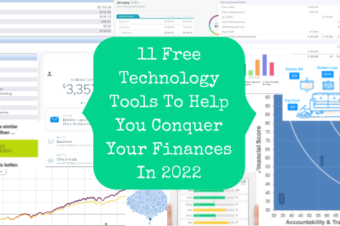
Sometimes in life, your greatest strength can also be your greatest weakness and your biggest disadvantage can also be your biggest advantage. Take Peter, for example. The same boldness and tendency to speak before thinking that caused Jesus to rebuke him and call him Satan is what prompted him to speak out and start the church on the day of Pentecost.
Some of the most powerful things in our lives can be used equally for good or evil. One of those things in the world of finance is called compounding interest. Compounding interest is powerful, and it can either be your best friend or your worst enemy.
What Is Compound Interest?
First of all, what is it? Referred to as both compounding and compound interest, it is simply interest that compounds and builds upon itself. For example, let’s say you have $100 that compounds annually at a 10% interest rate. The first year you will earn $10 of interest (10% of $100). Will you earn $10 again the second year?
No. Instead of $10, you will earn $11 interest. Why? Because the prior year’s interest is added to the balance before calculating the next year’s interest. You’re no longer calculating 10% of $100, but rather 10% of $110. Your interest payment grows each year because it is calculated on both the initial balance and all of the interest you’ve earned to date.
If you only earned $10 of simple interest each year, after 20 years you would have a total balance of $300 ($100 principal + $200 interest). However, with compounding interest, you finish with a balance of $672 ($100 principal + $572 interest). As you can see, that’s not straight-line growth, it’s exponential!
When Compounding Interest Works Against You
So far it looks like compounding interest is a great thing, right? It made it so you could almost triple your earnings in the above example. It is a great thing. When you’re on the right side of it.
The problem is that too many people find themselves on the wrong side of the compound interest equation. Instead of getting paid the compounding interest, you are the one paying it to someone else. That’s how credit cards work. That’s why it can be devastating to your financial life to only pay the minimum payments when you carry a balance.
Student loans work the same way. In a previous post, we discussed how graduate loans differ from undergraduate loans because the government does not subsidize them. Being unsubsidized means that interest starts accruing immediately even though you aren’t required to start making payments until you graduate.
Let’s say you borrow $40,000 in unsubsidized government loans to get a 3-year MDiv. The interest rate on these loans for the current school year is 6.08%. Three years from now when you start paying it back, is your loan balance still $40,000? Not at all! Thanks to the power of compounding interest, it has grown to $47,748.
If you think an additional $7,748 is bad, remember that the interest continues to accrue until the entire loan is paid off. Even if you get your loan paid off in ten years, you’ll still end up paying over $23,000 in interest. That’s over half the original amount borrowed!
When Compounding Interest Works For You
As you can see, you don’t want to be on the wrong side of compounding interest. But something that can be so devastating when it comes to debt can be your greatest asset when it comes to saving and investing. Let’s see how it works in real life.
Pretend that you save up $10,000 to invest for the future and are able to get an 8% return in the stock market. After 25 years, it will have grown to $68,484. You’ve earned $58,484 without lifting a finger. But what if you don’t need the money yet and can keep it invested? Maybe you put it in when you were 30 and you’re still happily working at age 55.
What happens when you leave your money invested ten more years? Suddenly, that same $10,000 grows to $147,853. Your entire balance more than doubled in just the last ten years. Just look at how much it has grown from the red arrow to the end of the graph without putting in any additional money.
How To Get On The Right Side Of Compound Interest
Clearly, compound interest is a powerful force in your personal financial life. It’s up to you whether it will be a force for good or evil.
If you don’t want it to be a force for evil, then the solution is simple: Don’t take on debt and get out of your current debt as quickly as possible. Simple, yes, but not easy. It will take discipline and may be very uncomfortable for a season. But, if your vision for the future is bigger than the discomfort of the present, you will be able to do it.
How can you make it a force for good in your life? That’s simple too. Start saving and investing. As before, simple but not easy. Just like getting out of debt, in order to save for the future, you have to make sacrifices in the present. Again, just like getting out of debt, if your vision for the future is bigger than the discomfort of the present, you will be able to do it.
I have faith that you can get onto the right side of compounding interest. Many have traveled this path before you and have been successful. If you’re one of them, what advice would you give to those who are just starting out? Please let us know in the comments.




2 Responses
Dan Dahling
October 22, 2019Started out in ministry 35 years ago with a base salary of $15,000. We we young and just starting to raise a family but decided to contribute $100 each month toward retirement. The account has grown to now $230,000 Yes, we took a hit in 2008 along with others but still managed to contribute each month year in and year out. We have learned to be steady and consistent throughout. Our advise – start early and be consistent.
Amy
October 29, 2019Thank you for sharing your experience, Dan. You have been faithful and diligent and the Lord has blessed you for it. I hope more young pastors will follow your example.